Last week the trial of the year ended when a six person jury ruled for San Diego Comic-Con in their trademark dispute with the Salt Lake Comic Con. I haven’t had time to dig into this much, but luckily Rob Salkowitz has this covered here, with an overview, and here with analysis of what the decision means.
While the decision was for SDCC, the jury awarded $20,000 in damages as opposed to the $12 million SDCC had sought, and, oddly, ruled that SLCC’s trademark infringement was “unintentional” despite emails where the SLCC organizers pretty much admitted that’s what they were doing.
I’ve only been following along on the news, like everyone else, but while there was initial and understandable alarm and panic among other folks who call their events “comic con/comiccon/comicon” that seems to have quelled a bit.
A few observations: this developed into something of a personal battle, with the CCI (Comic-Con International) board against SLCC organizers Dan Farr and Bryan Brandenburg. The initial suit was filed in 2014 and courts tried for three years to settle it with arbitration and other non courtroom methods. Why did this suit become so contentious? I’m only an amateur psychologist, but it’s worth noting that San Diego settled two years ago with Media One Utah, the Mormon backed media company with owns the Deseret News and Salt Lake Tribune. SDCC appears to have been willing to settle the litigation out of court provided their criteria were met.
Also, in the spirit of disclosure, SDCC has been a sponsor of this site for over a decade, and I’ve known many of the CCI folks for more than 20 years. I’ve never been to Salt Lake or met Farr or Brandenburg. So take what I’m about to say with a grain of salt.
With that as a preamble, as many have noted, it was the car with an SLCC sign at the 2014 show that really set this off. SDCC has been seemingly lax about reinforcing their trademark on the term “Comic-con” but this blatantly invasive tactic may have struck too close to home.
For their part, SLCC seemed to be ready to fight fire with fire, with a whole page on their site devoted to the case and very frequent social media postings by Brandenburg over the years talking about how they would prevail, getting into crowdfunding with a “Cavid v Goliath” pitch and so on.
In fact, Brandenburg posted so many things that during the trial, the judge warned him that if he didn’t stop posting, he might be charged with contempt of court and sent to the pokey:
While jurors in the case were out of the courtroom Wednesday, attorneys for San Diego Comic-Con read a Facebook post to the judge, posted by the Salt Lake event in an apparent effort to rally fans.
Bjurstrom speculated the remarks could be a deliberate attempt to cause a mistrial.
“I think this is a highly inappropriate post,” Bjurstrom said. “It is just a complete attempt to taint whoever they can reach.”The post announced that Brandenburg would take the witness stand to show that “comic con is owned by the people, by all the fans that experience the joy and celebration of comic con in cities all over the world.”
Battaglia prohibited such arguments in the trial based on objections raised beforehand by San Diego. He warned that if Brandenburg intended to make any such statements during his testimony, “tell him to bring his toothbrush with him.”
The same applied to any of Salt Lake’s other witnesses, Battaglia indicated.
“I will put them in jail if they violate this order. They are not to escalate this case into a war involving the world,” Battaglia said.
In an earlier order, Battaglia had also barred Farr and Brandenburg from discussing the case, including on their personal social media pages. That order was struck down in October by 9th Circuit Court of Appeals, which found it violated First Amendment protections of free speech.
“The circuit seems to believe people can say whatever they want in the world and in the media, but they don’t get that privilege in my courtroom,” Battaglia noted Wednesday.
In the same story there’s what seems to be the smoking gun in the case:
On cross examination Wednesday, Callie Bjurstrom, an attorney for San Diego, questioned Brandenburg on whether he reached out to anyone at San Diego Comic-Con to confirm whether they took issue with the name when Salt Lake chose it.
Brandenburg confirmed he did not.She also presented two emails from Brandenburg, sent in the early days of Salt Lake Comic Con, discussing the businesses’ plan to “hijack” the popularity of comic con. One of the emails went on to clarify, “Comic con is just the abbreviation for comic convention.”
“Mr Brandenburg, that’s what you have done here, isn’t it? You have taken something that isn’t yours and you are using it for your own purposes, isn’t it?” Bjurstrom pressed.
“No, it is not,” Brandenburg replied.
Although the jury didn’t interpret this as being deliberate, so go figure.
At any rate, it’s fair to say that Brandenburg comes off, on social media, anyway, as a bit brash. They may not have played as well in the courtroom.
But what of the future? Will CCI be cracking down on every comic con across the land? It’s been noted that CCI has actually been licensing out use of the term to events thrown by Leftfield and Informa, but not ReedPop. Salkowitz:
License, Ignore or Fight? Some event organizers sought and received licenses from CCI prior to the resolution of the case. Informa, the organizer of FanExpo Canada and several other large fan events in North America, reached an agreement with the San Diego group after it acquired Boston Comic Con. Left Field Media, the fan con company founded by former NYCC organizer Greg Topalian, also announced a license agreement for Rose City Comic Con, the Portland, Oregon show the company acquired this past fall. Several other smaller shows also reportedly have permission to use call themselves “Comic cons.” Terms of the license deals were not disclosed.
Ace Entertainment, the new convention organization started by former Wizard World founders Gareb and Stephen Shamus, opted to call their events Comic Cons despite the pending litigation. Independent shows Denver Comic Con and Phoenix Comic Con each sided with SLCC in the trial, offering depositions and testimony in support of Farr and Brandenburg’s claim that the term was generic. Fan sentiment online, and informal opinions expressed by other independent show operators still heavily favors this point of view in spite of the court decision.
My guess is that more licensing deals will be struck and the personal affront that SLCC delivered to SDCC is not present in other con relationships. The CCI folks have been more active in reaching out to other conventions in recent years, and, if you want to get granular, I’ve seen CCI folks and ReedPop folks sharing a beer or two at BarCon. That kind of thing counts. ReedPop’s Lance Fensterman spoke to Salkowitz:
Reached over the weekend, Lance Fensterman, Global Head of ReedPOP, said “We haven’t seen anything issued from the Court or the jury other than what’s appeared in the press. Until there is a final disposition of that case, we will reserve detailed comment. Nevertheless, we expect there to be no impact on our continued use of the New York Comic Con name for our annual event now well over a decade in existence or use of any of our other proprietary event names.”
Since the Verdict Brandenburg has been at peace, he reports:
Dan and I have no regrets about standing up for ourselves when we took action after receiving a cease and desist. In hindsight, we would not have taken the car down to San Diego. For that we apologize to San Diego Comic Con. They are a great event with great people.
This process helped me realize once again that we truly have the best fans in the world. You have been there for us and it was comforting to have so many pulling for us. We are glad that we were able to clear our names at a minimum. But there are a lot of things moving in the background which I cannot talk about. All good things.
We own the trademark for FanX. There are over 140 comic cons and one FanX. That’s not a booby prize. If we needed to drop comic con from the name and just be FanX we have a trademark for that and a lot of positive brand awareness. Almost all the hundreds of thousands of people that have attended our events are familiar with that brand and name.
We’re not sure exactly how things will play out. We may change our name. We may appeal. But one thing is for certain. 2018 will be our best year yet.
SLCC may yet appeal the jury’s decision, and there will doubtless be more behind the scenes negotiating among con organizers, but in this case, the verdict seems to have backed up the opinion shared by most people: When you hear the term “Comic-Con” you think of San Diego.


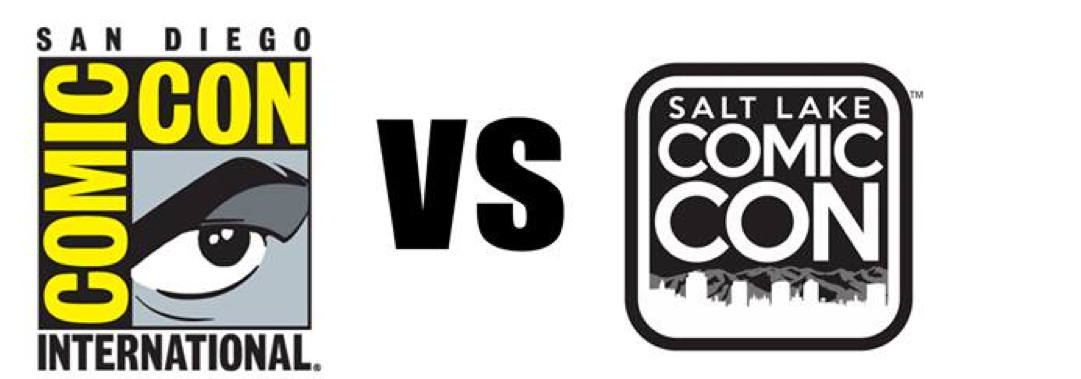
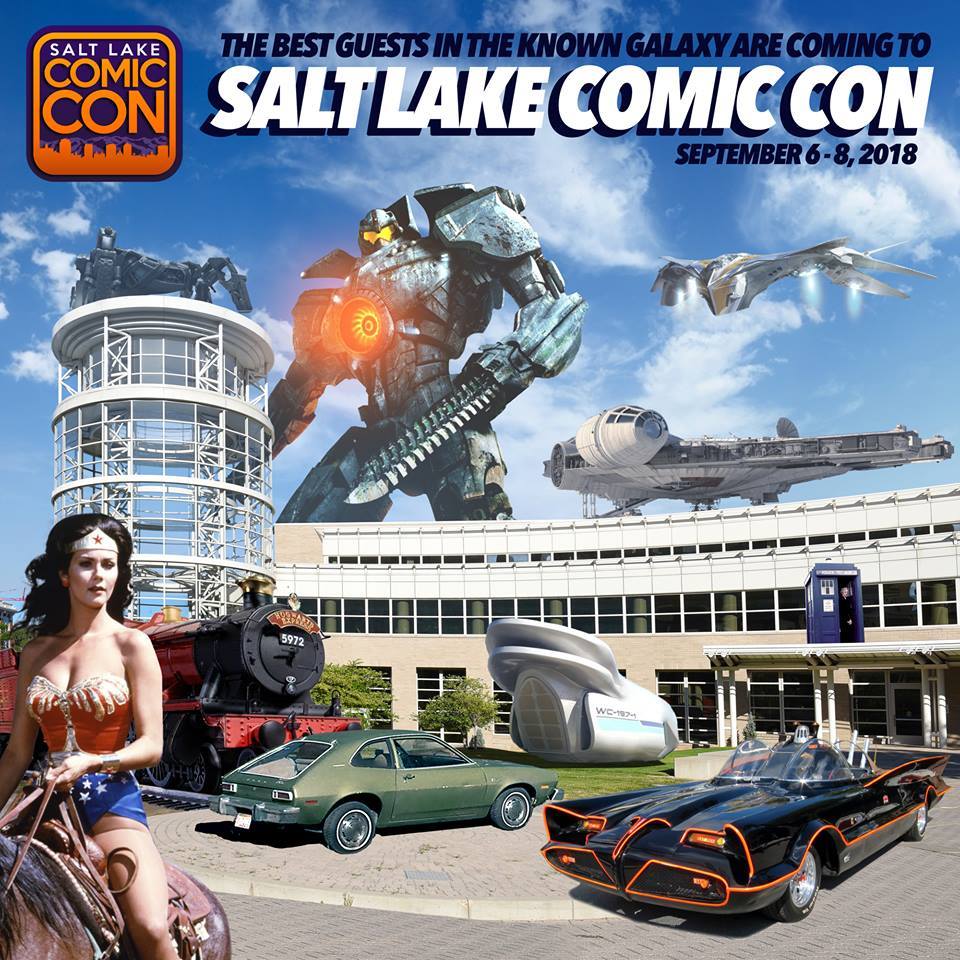
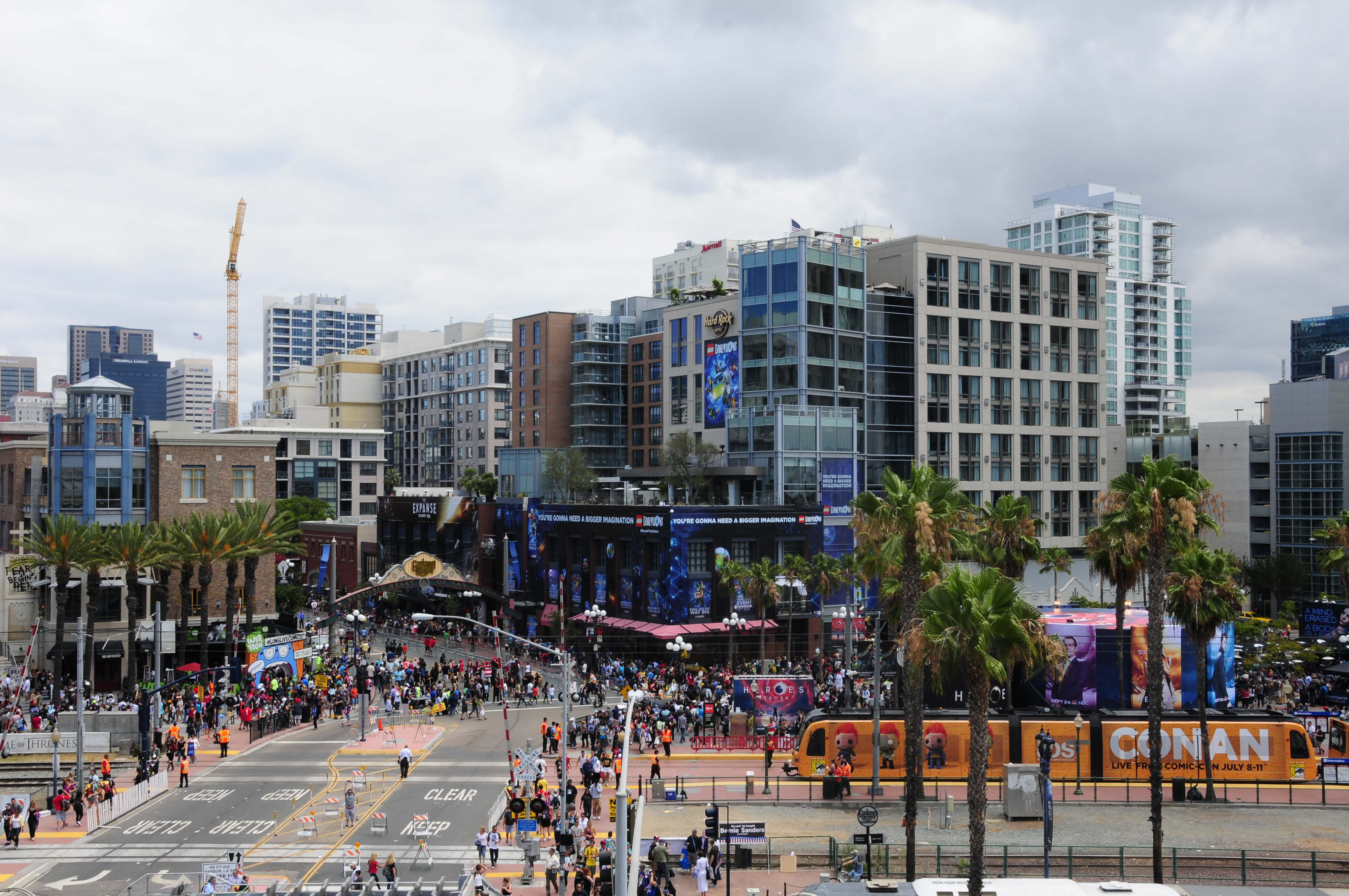

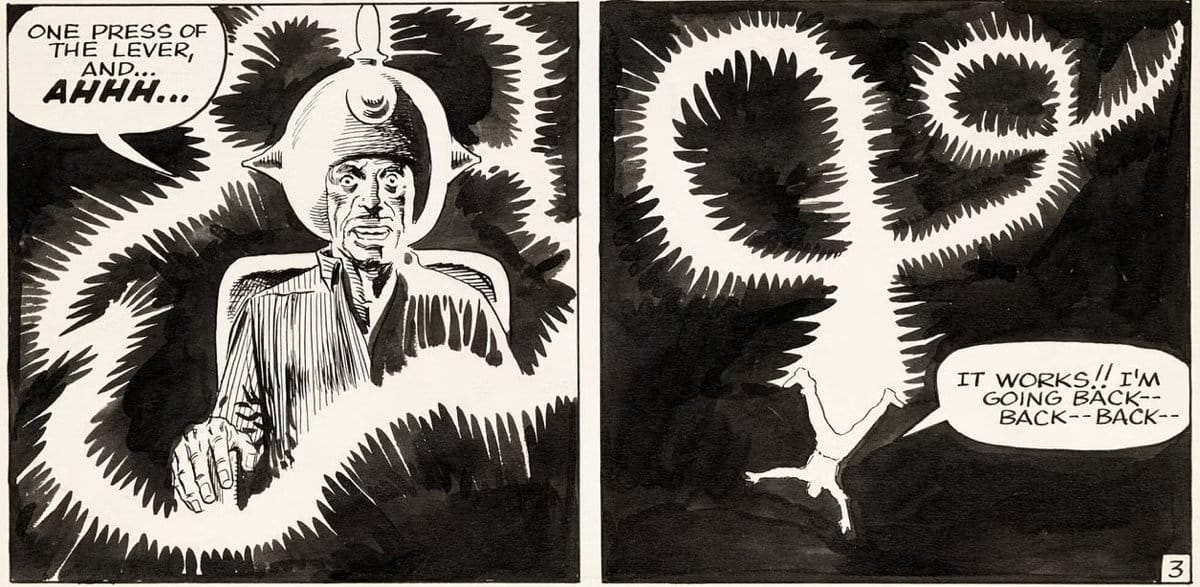
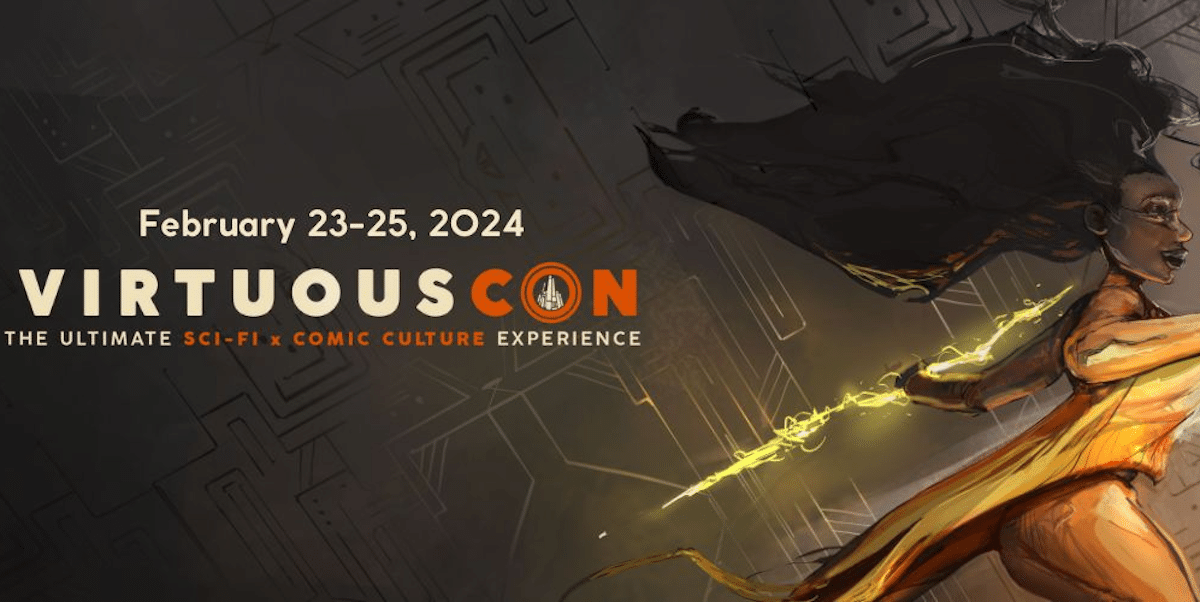


I hear the term “extrosion” is available for use…
I’ve read comics for all my 46 years on this earth. San Diego Comic Con has been on my bucket list for some time, but this case has quickly made me loathe and despise the “big con” attitude of SDCC. Comic Con should be no more of a trade mark than county fair or gun show should be. Enjoy your victory. I’ll never set foot in SDCC.
You know what is funny despite fighting to use the term “comic con” in their name, SLCC has no actual comic representation in their 2018 promotional poster.
I think the WW and Batmobile pretty much cover it, given that it wouldn’t look too great to have drawings inserted into a pic that currently has just photographs. But I do think it is ironic that fans want to call these comic-cons on one hand, but then complain that there isn’t enough comics content at them on the other.
Correction: Media One Utah is owned by the Deseret News and Salt Lake Tribune. Not the other way around. They are competing news papers but share ownership in the printing and distributing company.
Comments are closed.